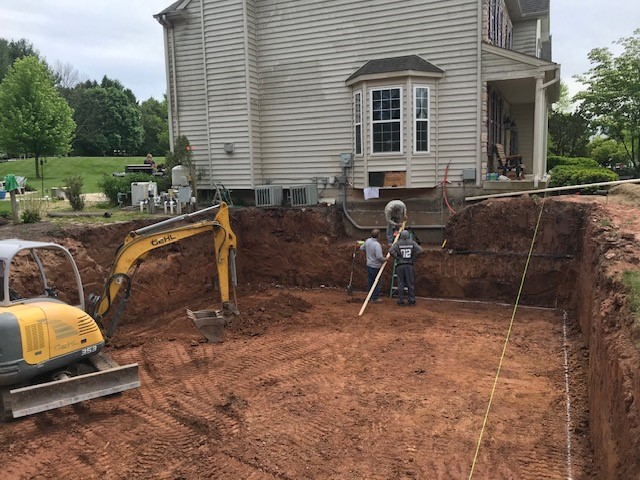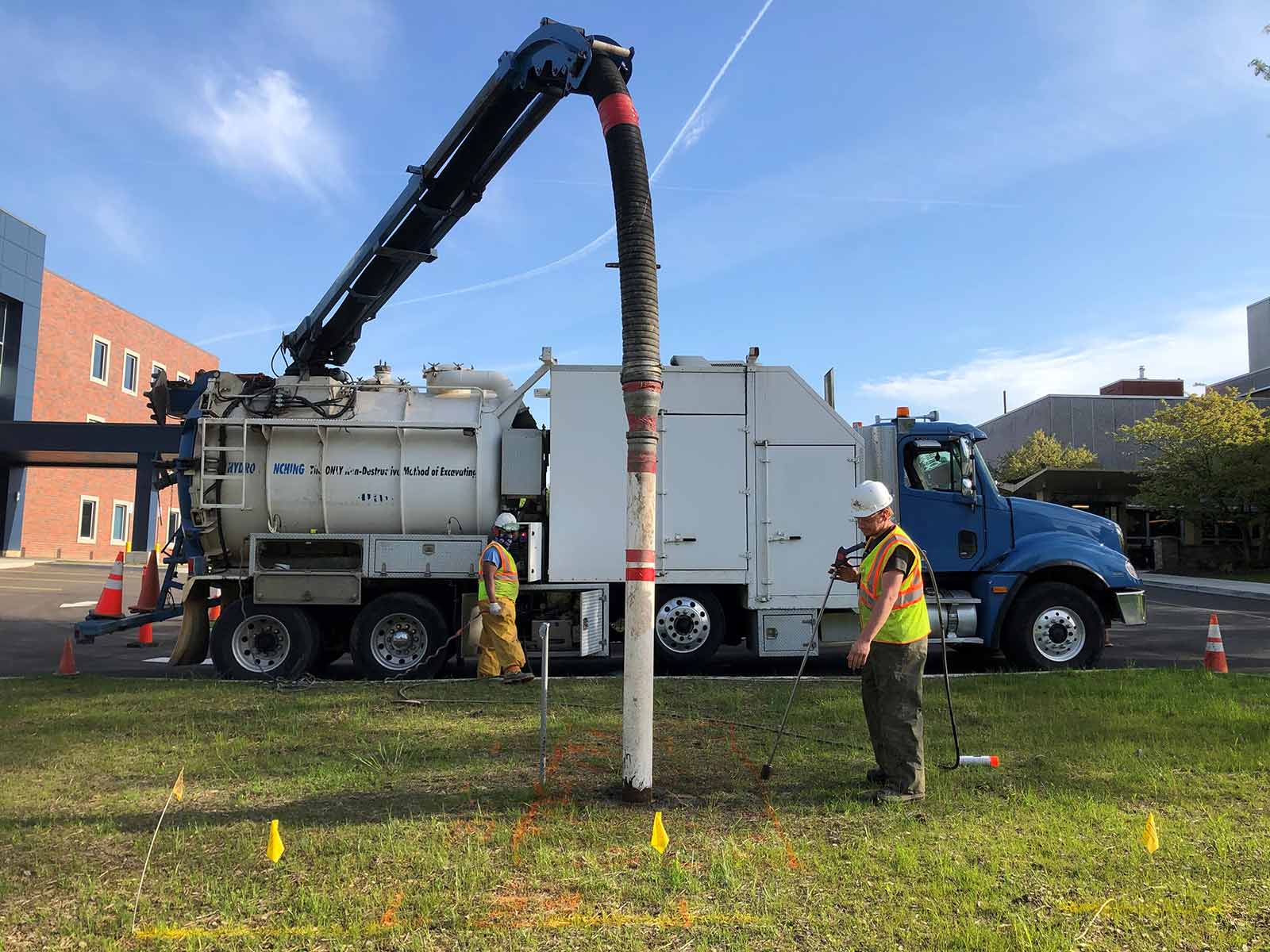Budget-friendly Lancaster Excavation - Quality Excavation at Competitive Costs
Budget-friendly Lancaster Excavation - Quality Excavation at Competitive Costs
Blog Article
Comprehensive Excavation Strategies: Grasping the Fundamentals for Success
In the realm of building and construction and civil engineering, the importance of effective excavation strategies can not be overemphasized. The careful planning, accurate execution, and careful focus to detail required in excavation projects require a detailed method that encompasses various fundamental facets. From preliminary dirt evaluation to the execution of precaution and routine development monitoring, understanding these core components is necessary for accomplishing success in any excavation venture. Nonetheless, the true mastery exists not just in recognizing these fundamentals yet in perfectly incorporating them to browse the complexities of excavation jobs with finesse.
Understanding Excavation Project Preparation

Successful excavation jobs are improved the structure of detailed and precise preparation. The initial stage of any kind of excavation project is the preparation phase, where important choices are made that can substantially affect the outcome of the project. During this phase, it is important to gather all relevant information regarding the website, including topographical surveys, soil make-up, and any kind of potential dangers that might exist. Recognizing the task extent, spending plan, and timeline constraints is critical for creating a detailed excavation plan that makes sure the project's success.
One trick element of excavation project preparation is the development of a comprehensive timeline that describes the series of turning points, target dates, and tasks. This timeline serves as a roadmap for the project group, permitting them to track progression and make necessary changes to make certain the task stays on schedule. Additionally, a distinct budget plan that represents all expenses, consisting of devices service, labor costs, and materials, is necessary for staying clear of expense overruns and delays. By thoroughly thinking about all these aspects during the drawing board, excavation jobs can be performed successfully and efficiently, causing successful end results.
Soil Analysis and Website Assessment
Performing extensive dirt analysis and website examination is a crucial action in the prep work stage of any type of excavation task. Dirt evaluation involves figuring out the make-up, structure, and residential or commercial properties of the dirt at the excavation website. This information is critical for recognizing the dirt's bearing capacity, moisture material, and possibility for disintegration, which are crucial consider figuring out the excavation approaches and devices required for the project.
Website examination surpasses dirt evaluation and incorporates a more comprehensive analysis of the total site conditions. This evaluation includes determining any prospective hazards, such as below ground energies, environmental issues, or unstable terrain, that might influence the excavation procedure. By extensively evaluating the website, project managers can create reliable excavation techniques that prioritize safety, effectiveness, and environmental management.
Utilizing sophisticated innovations like ground-penetrating radar, soil sampling, and drone surveys can boost the precision and performance of dirt analysis and site examination. Investing time and sources in these preliminary actions can eventually conserve time and avoid costly delays or complications during the excavation process.
Devices Selection and Usage
Efficient excavation tasks rely greatly on strategic equipment choice and utilization to ensure optimal performance and performance. Picking the appropriate devices for the job is important in taking full advantage of efficiency and minimizing downtime. Aspects such as the type of soil, deepness of excavation, and job scope play a significant function in identifying the most ideal equipment for the task at hand.

In enhancement to choosing the suitable tools, correct usage is vital to task success. Operators should be educated to deal with the equipment safely and efficiently - lancaster excavation. Routine maintenance checks and prompt repair services aid prevent break original site downs and make certain regular performance throughout the job
Precaution and Regulations Compliance
In the world of excavation projects, prioritizing security measures and conformity with guidelines is paramount to making certain a secure and legitimately audio functional environment. Precaution encompass a variety of practices, consisting of carrying out complete website analyses, executing proper signs and obstacles, and supplying sufficient safety training for all workers associated with the excavation procedure. Adherence to laws, such as OSHA needs in the United States, makes sure that the excavation project meets the needed requirements to secure employees, spectators, and the surrounding setting.

Monitoring Progression and Adjusting Approaches
Just how can forecast supervisors successfully track the advancement of excavation tasks and adapt their methods appropriately to maximize results? Tracking progress is crucial for ensuring that excavation projects remain on track and fulfill due dates. Project supervisors can utilize numerous tools and methods to track progress, such as daily report card, normal site evaluations, and progressed monitoring innovations like drones and GPS tracking systems. By continuously keeping track of the project's development, supervisors can recognize any type of potential delays or issues early and take proactive measures to address them.

Verdict
Finally, understanding the here are the findings principles of detailed excavation approaches is vital for the success of any job. By understanding project planning, assessing dirt and site problems, picking suitable equipment, following safety and security regulations, and keeping an eye on progress, project managers can make certain a smooth and efficient excavation process. Carrying out these approaches will cause effective results and decrease possible risks or troubles during the excavation job.
The first phase of any type of excavation project is the preparation phase, where crucial choices are made that can significantly influence the outcome of the task. Recognizing the task spending plan, timeline, and extent restrictions is crucial for developing an extensive excavation plan that makes certain the project's success.
Exactly how can forecast managers effectively track the improvement of excavation projects and adapt their strategies accordingly to optimize outcomes? By very closely checking development and being ready to adapt approaches, task supervisors can improve the overall success of excavation jobs.
By recognizing project planning, analyzing dirt and website problems, picking proper devices, complying with safety guidelines, and keeping track of progression, project managers can guarantee a smooth and reliable excavation process.
Report this page